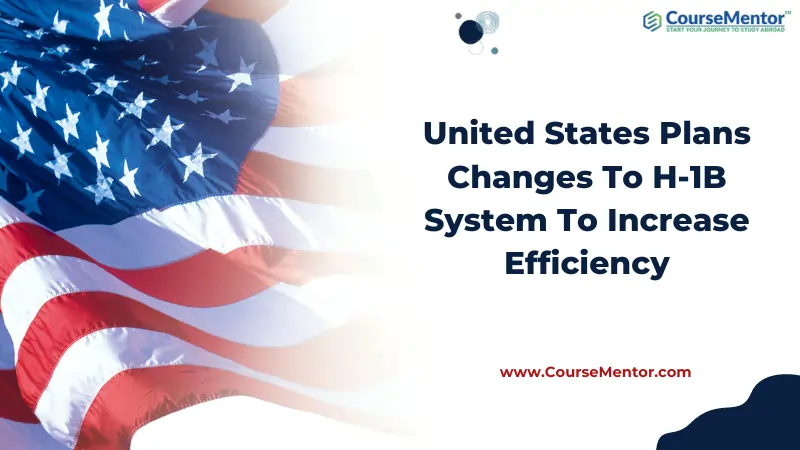United States Plans Changes To H-1B System To Increase Efficiency: The Biden administration is set to change the H-1B foreign worker program. These changes aim to improve the program’s efficiency while maintaining the annual visa cap of 60,000 mandated by Congress.
The US Citizenship and Immigration Services (USCIS) will publish the proposed adjustments on October 23 to simplify eligibility criteria and provide flexibility to F-1 students, entrepreneurs, and nonprofit organization employees while maintaining the integrity measures of the program.
United States Plans Changes To H-1B System To Increase Efficiency
The Department of Homeland Security (DHS) actively seeks public information and feedback on these proposed regulations, emphasizing enhancing the program’s efficiency and providing more significant advantages and flexibility for workers and employers, ultimately improving the H1-B program’s overall integrity.
The H-1B visa program is an essential tool that helps US employers stay competitive in the global job market while following US labor regulations.
Secretary of Homeland Security Alejandro N. Mayorkas has emphasized the current administration’s dedication to attracting global talent, reducing the burden on employers, and preventing fraud and misuse in the immigration system.
The H1B visa is a non-immigrant visa program that permits US employers to temporarily employ foreign employees for some specialized fields needing a bachelor’s degree or higher.
The proposed rules aim to change the H1B visa registration selection process for applicants and to minimize the potential for fraud and misuse.
Under the new H1B visa proposal, every individual would have only one entry in the selection process, regardless of the number of registrations submitted on their behalf.
This adjustment aims to ensure that fair registrations have an equal chance of being selected and that the selection process is suitable for everyone.
It will also give beneficiaries more options regarding job offers because each registrant who submitted a registration for a selected beneficiary would have the opportunity to file an H-1B petition on their behalf.
The criteria for specialty occupation positions would be updated to clarify the relationship between the required degree fields and job duties.
Furthermore, adjudicators would depend on previous determinations if no applicable facts have changed.
The proposed rule seeks to expand the exemptions to the H-1B cap for governmental research organizations, nonprofit entities, and beneficiaries not directly employed by a qualifying organization.
In addition, the rule provides more flexibility to F-1 students who wish to switch to H-1B visa status and introduces new eligibility requirements for aspiring entrepreneurs.
Related entities cannot submit multiple registrations for the same beneficiary to prevent fraud and misuse.
The USCIS will have the authority to conduct site visits, and non-compliance may result in petition refusal or cancellation.
Ajay Bhutoria, an influential supporter of immigration reform within the Indian American community, has welcomed the suggested changes.
He believes these proposed revisions are a significant step towards simplifying the US immigration system and making it more accessible to skilled professionals and students worldwide.
These reforms aim to tackle long-standing issues in the H1B program while promoting a welcoming environment for global talent and maintaining the competitiveness of American industries.
So, it is all about the United States Plans Changes To H-1B System To Increase Efficiency.
For more information, keep visiting Course Mentor.
Source:- economictimes.indiatimes.com


